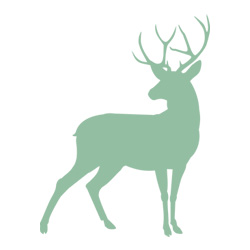DACF Home → Bureaus & Programs → Bureau of Agriculture → Division of Animal and Plant Health → Animal Health

Animal Health
News
December 3, 2025: Animal Health Officials Remind Bird Owners to Protect Flocks from HPAI
October 1, 2025: Maine Animal Health Officials Remind Owners to Vaccinate Their Animals
September 23, 2025: New World Screw Worm Fact Sheet (PDF)
- August 19, 2025: UMaine Extension Tick Lab researchers confirm presence of invasive Asian longhorned tick in Maine
- February 11, 2025: Maine Health Officials Urge Precautions For Public as Avian Influenza Is Confirmed in Maine
- Oct 2, 2024: Mosquito-Borne Illnesses Situational Report
- Sept. 6, 2024: Eastern Equine Encephalitis Identified in a Maine Horse
- Sept. 5, 2024 Health Advisory: Increased Illness and Death in Maine Pigs
- NEW CDC REQUIREMENTS for DOGS Entering or Returning to the US
- HPAI in Dairy Cattle News & Resources
- 6/17/2024 - Five Steps to Help Keep Animals Cool and Safe as Temperatures Rise
- 4/11/2024 - Webinar: Update on HPAI Detections in Dairy Cattle Presentation (PDF)
- 4/2/2024 - APHIS Recommendations for Highly Pathogenic Avian Influenza (HPAI) H5N1 Virus in Livestock For State Animal Health Officials, Accredited Veterinarians and Producers (PDF)
- 4/1/2024 - DSHS Reports First Human Case of Avian Influenza in Texas
- 3/29/2024 - USDA, FDA and CDC Share Update on HPAI Detections in Dairy Cattle
- 3/26/2024 - Cattle Concerns in Texas Panhandle: What You Should Know
- 3/19/2024 - Highly Pathogenic Avian Influenza Detected in Texas and Kansas Dairy Herds
- 1/12/2024: Maine Officials Respond to Avian Influenza Detected in York County
Close -
I am importing...
Does not require an import permit.
Cats and dogs not for resale do not require an import permit. For rescue and resale animals, please contact Animal Welfare Program at (207) 287-3846.
Starting August 1, 2024, dogs entering the United States will have new requirements. Visit CDC.gov for more info.
An import permit is required.
Import Permit Form
An import permit is required. Required to be enrolled in the USDA Scrapie program.
Import Permit Form
An import permit is required.
Please contact Animal Health at (207) 287-3701.
An import permit is required.
Please note that “Pet Pigs” are still considered livestock and must meet all import requirements for swine. Pet microchips are NOT acceptable forms of ID.
Import Permit Form
Please contact Maine Dept. of Inland Fisheries & Wildlife, (207) 287-5252 or (207) 287-8000.
Please contact Animal Health, (207) 287-3701.




